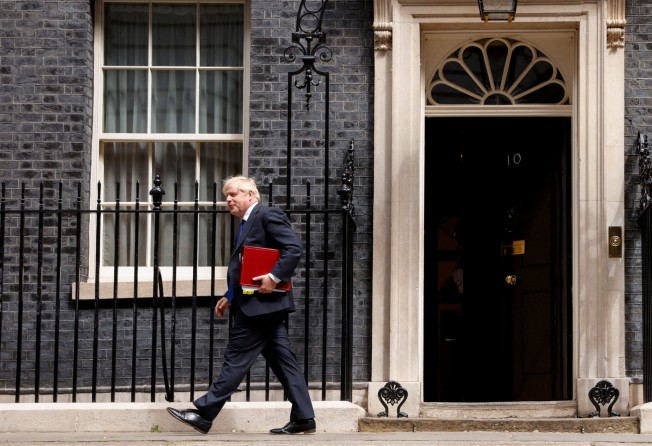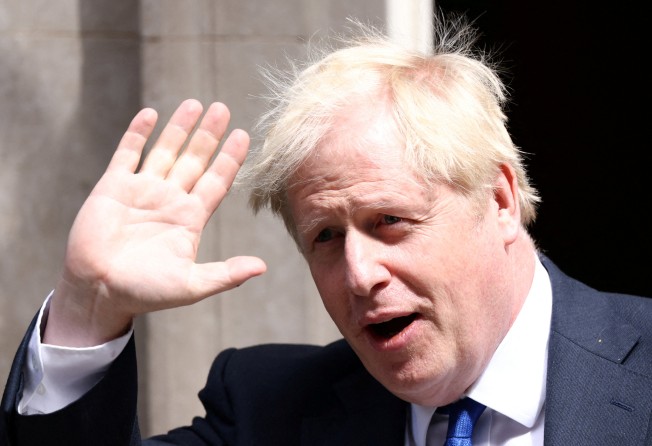
Is ‘hubris syndrome’ the reason why UK’s Boris Johnson took so long to resign?
- Term was coined after a 2008 study found a personality change brought on over time by people in power, often sparked by a specific trigger – exercising power
- Johnson had earlier said he would ‘of course’ remain as prime minister, despite facing pressure to quit amid a mounting rebellion within the Conservative Party

Britain’s Prime Minister Boris Johnson has been said to be like a cat with nine lives, having survived a long list of unforced errors and scandals since taking office in 2019.
Finally, his country has been put out of its misery and Johnson has belatedly taken the advice his former ally David Davis offered way back in January: “In the name of God, go.”
Before his resignation speech on Thursday, the British media had been on overdrive offering advanced eulogies for Johnson’s two-decade political career.
The Daily Mail columnist Stephen Glover wrote this week that while Johnson would be revered for delivering Brexit, his “chief flaw” was his “reluctance to tell the truth, which has marked him out even in a profession not celebrated for its veracity”.

For me, Johnson’s travails represent a good case study of the tendency of those in power to be prone to extreme hubris, more than others.
David Owen, a former British politician and a doctor trained in psychiatry, in a 2008 study said a so-called “hubris syndrome” manifests in leaders “the longer the person exercises power and the greater the power they exercise”.
What else could explain the extent of Johnson’s delusion?
Grilled by lawmakers on Wednesday as resignations from his cabinet piled up and one of his closest allies Michael Gove told him to quit, Johnson said he was having a “terrific” day and that he would “of course” remain prime minister.
We see this affliction here in Asia, too. Hong Kong, for instance, was only recently relieved of a leadership that at times appeared capricious, and too set in a “my way or the highway” mentality.
Across the region, including in former British colonies where the trappings of democracy mask the reality of dynastic rule, there are such examples, too.
It is not uncommon in our neighbourhood for leaders to surround themselves with acolytes and change the rules of political succession just so they can prolong their time in power.
This practice boils down to a belief among these leaders, almost always flawed, that the societies or political parties they govern will quickly wither away once they step down. The reality of course is that this is delusional – no leader is indispensable.
The onus is on those with power to select and dethrone leaders – for instance cadres in political parties or cabinet members – to cut down leaders once it is apparent they are possessed by hubris syndrome.
The failure of stalwarts within the British Conservative Party to take such action over the last year may prove very costly in time to come.